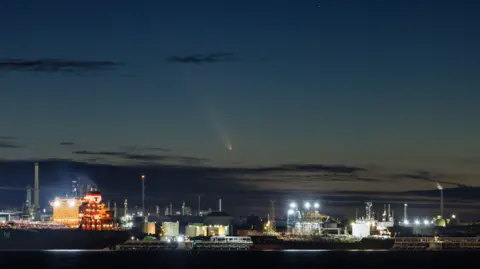 Martin Cohen
Martin CohenPeople from around the UK have been taking pictures of the “comet of the century”, which was spotted streaking across the sky on Saturday night.
Comet A3 (Tsuchinshan-ATLAS) was last month seen from Earth for the first time since the Neanderthals were alive, some 80,000 years ago.
On Saturday, a number of British stargazers said they had spotted the object, after the Royal Astronomical Society (RAS) predicted it might be visible to the naked eye.
Most images show the comet as a bright streak of light, similar to a torch, on the horizon.
Other pictures show a trail in the sky similar to what you might see coming out of an airplane.
Below are a selection of the best shots so far.
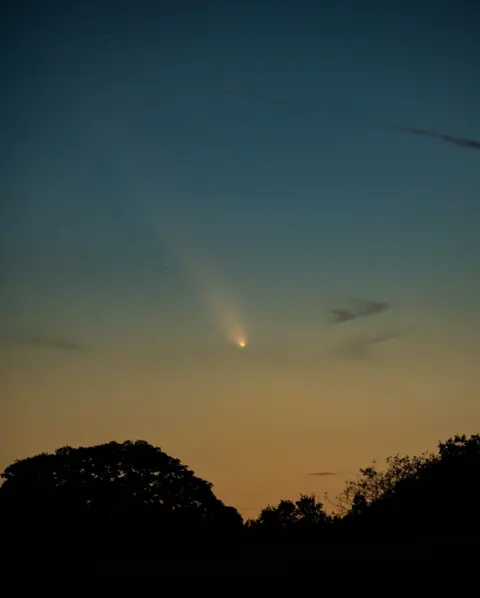 Arash Sefidgaran
Arash Sefidgaran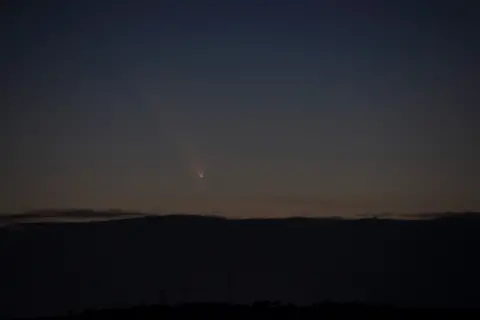 Meryl Goulbourne
Meryl Goulbourne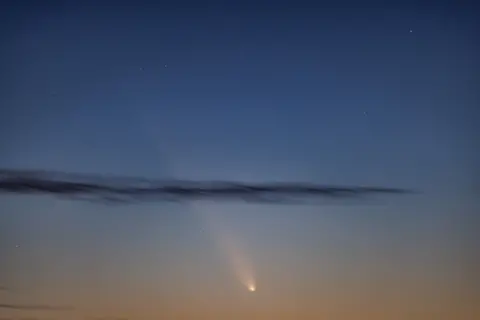 Martin Cohen
Martin CohenThe Nasa Earth Observatory had predicted the comet could come within about 70 million km (44 million miles) of Earth on Saturday.
The RAS added the comet would be visible in the northern hemisphere from Saturday night until 30 October.
The comet was photographed in Spain, Italy, Uruguay, and Indonesia from late September to early October, when it was visible in the southern hemisphere.
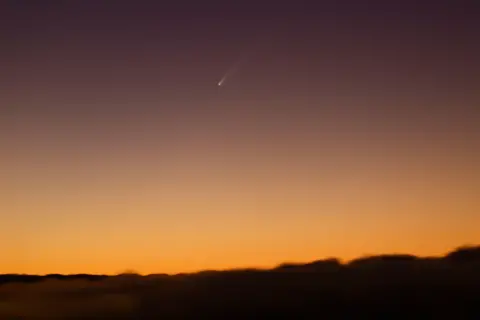 Reuters
Reuters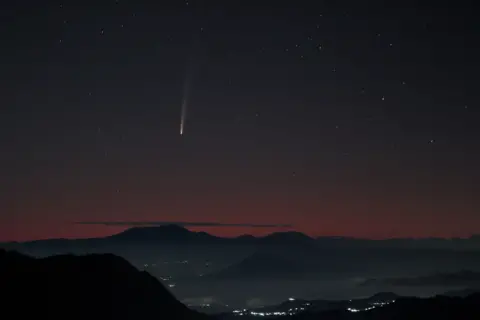 Getty Images
Getty ImagesRAS said the object has been called the “comet of the century” because of its impressive brightness and visibility.
The organisation’s Dr Robert Massey advised enthusiasts to go out “immediately after sunset” with a pair of binoculars, head for higher ground and look west towards the horizon.
He suggested avoiding areas where views of the sky are obstructed and bringing a hot drink.
Dr Massey said a DSLR camera could capture shots of the comet, but said holding a mobile phone camera up against the eyepiece of a small telescope could also snap the space event.
On Thursday, the UK’s skies were once again treated to a display from the Northern Lights.

Have you seen the Comet A3? Share your photos and experiences
Please include a contact number if you are willing to speak to a BBC journalist.
You can send in photos/videos to us via the below:
Email: [email protected]
WhatsApp: +44 7756 165803
Tweet: @BBC_HaveYourSay

